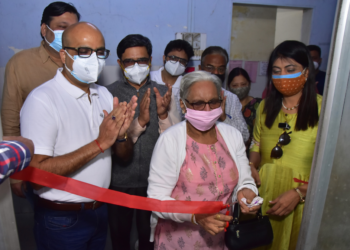NEW DELHI: Experts converged for the national summit on Extractive Industry and Sustainable Development in New Delhi concluded that there is an urgent need to go beyond mandatory 2 percent corporate social responsibility (CSR) under the Companies Act, 2013 for the extractive sector in India.
The summit organised by International Institute of Corporate Social Responsibility (IICSR) in association with Asia Pacific Institute of Management (APIM) was inaugurated by Choudhary Birendra Singh, Union Minister of Steel.
The challenge is to achieve a balance to effectively leverage these resources for economic and social development and at the same time prevent the negative impact on environment, the minister said. Playing with nature can be harmful. “Issues like… impact on the surrounding communities, pollution and environmental catastrophe are associated with the industry,” he said.
Bipul Pathak, Joint Secretary, Ministry of Mines informed the summit that the government has already constituted a 29-member panel to draft the new framework for a new National Mineral Policy. “We are reviewing the existing National Mineral Policy (2008) with changes in the framework of Mining Laws, Rules and Regulations to the Mines and Minerals (Development and Regulation) Act, 2015 brining in transparency, balanced socio-economic growth, including sustainability of mining industry. The new National Mineral Policy will be ready by end of 2017,” he said.
The revised National Mineral Policy, Pathak said, would help in the direction of expanding the country’s industrial metal capacity by making it easy for the investors to get approval for mining leases as part of Prime Minister, Narendra Modi’s ambitious plans on various infrastructure overhaul programmes.
Dr. Bhaskar Chatterjee, former DG & CEO, Indian Institute of Corporate Affairs and Advisor, IICSR, pointed out that the affected people in the mining area should be regarded as stakeholders to an amount equal to the royalty that they pay to the state government annually. “The new policy should have the incentives for the explorer since the owner of the mining lease is required to pay royalty to the state government and an equal percentage to the private exploration company. The revenue sharing could be in the form of a lump sum or an annuity to be paid throughout the period of mining lease, with transferable rights,” he added.
According to Mahesh Patil, Founder Director, NV Eco Agro Tourism Pvt Ltd and former vice president of Sesa Goa – Vedanta Limited, the extractive industry has boundaries, but the impact is high and it’s a great opportunity for the mining industry, in particular, the mineral rich states such as Andhra Pradesh, Chhattisgarh, Goa, Gujarat, Jharkhand, Karnataka, Madhya Pradesh, Maharashtra, Odisha, Rajasthan, Telangana and Tamil Nadu to come clean. “The matter of trying to balance the extractive industry and the sustainable development activities are challenging because while on the one hand the economic value of the mineral extraction is doubtlessly very strong, as it says, it is extractive so it will disappear after a short while.
The sustainable development and production that will ensure from preserving and maintaining the environment and geophysical features of that area are going to redound forever. Whereas, there is a need to look beyond the mandatory two per cent contribution towards the CSR activities by the mining industry,” he added.
The summit focused on key issues such as challenges faced by the industry, social license to operate by CSR initiatives, policies and framework as well as to draw a roadmap for the future for responsible and sustainable growth.
“Responsible companies such as Tata and Vedanta are already working for the interest and benefit of persons and areas through the 2 percent CSR spend mandated under the Companies Act. With sustainable development as a priority, the extractive industry, at large, should be committed to local community development and should have well-established CSR activities aimed at integrated rural development to meet the local needs and aspirations,” said Harsha Mukherjee, Founder and Managing Director, IICSR.
Dr Huzaifa Khorakiwala, Executive Director Wockhardt Hospitals; Ajay Jha, Secretary Environment, Pradeepto Ghosh, former Environment Secretary, Nanik Rupani, Chairman at Neutron Electronic Systems Pvt Ltd and Vijay Kumar, Distinguished fellow TERI and others were present.






















